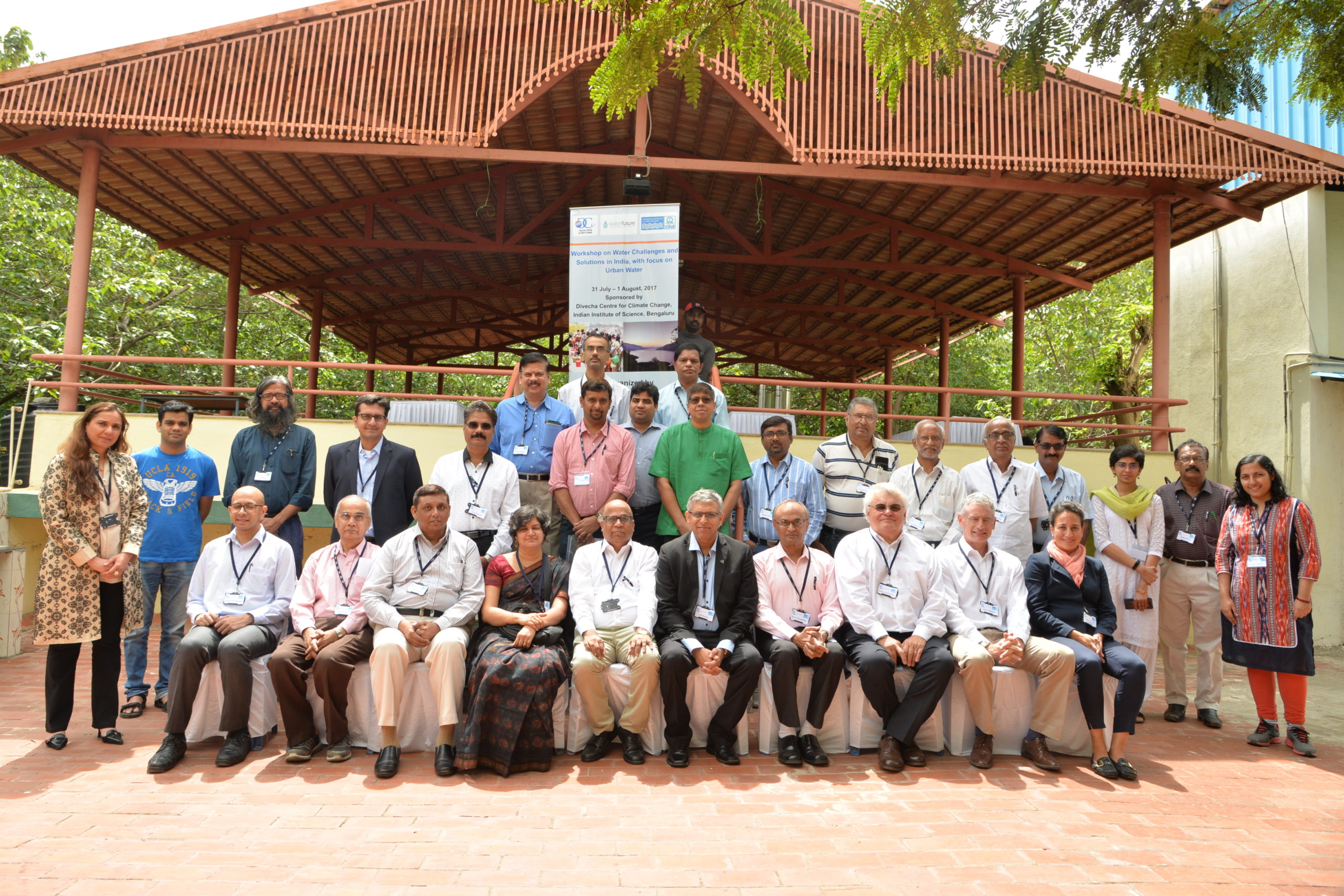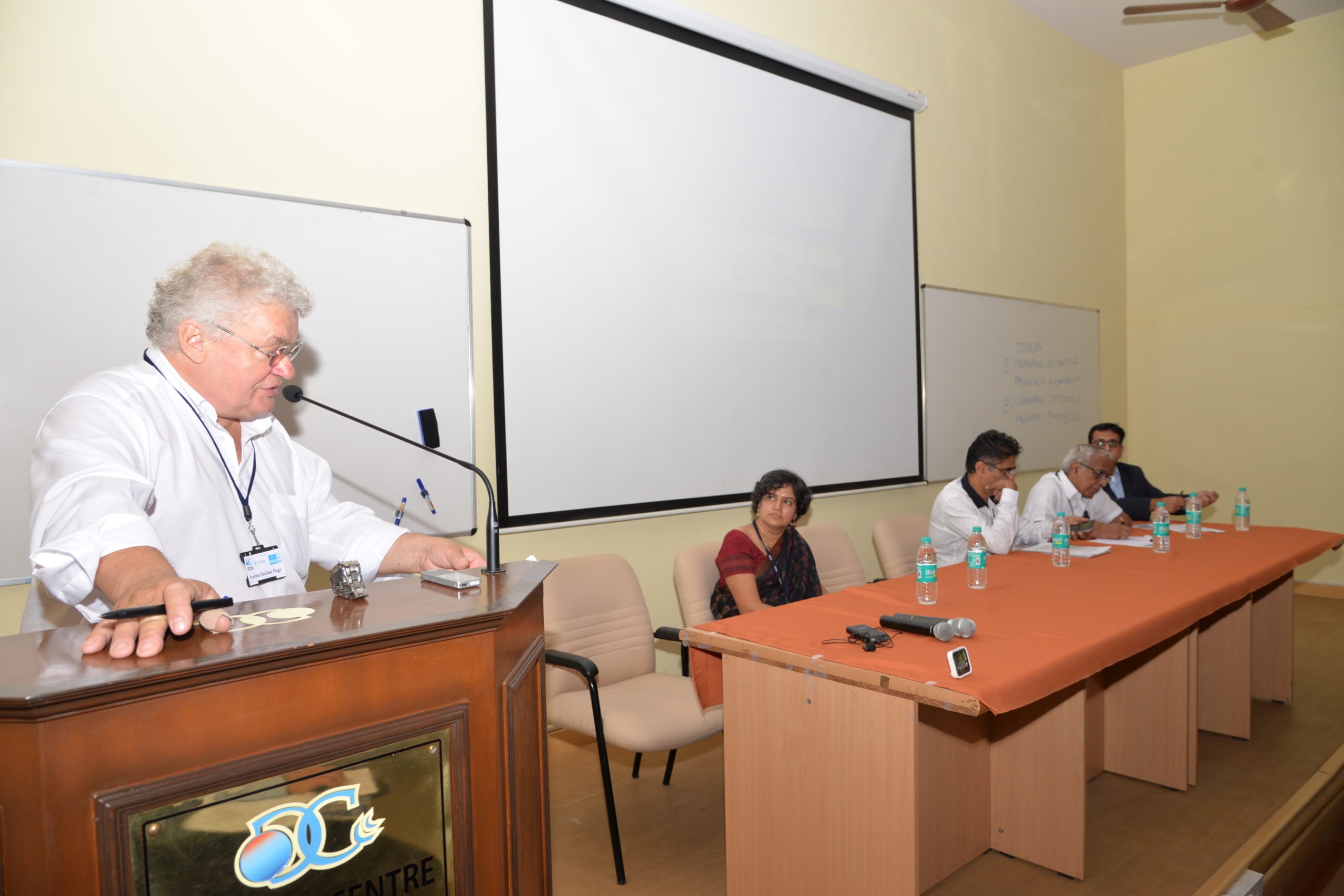Divecha Centre hosted a workshop on “Water Challenges and Solutions in India, with focus on Urban Water,” on July 31 to August 1 2017, in collaboration with Interdisciplinary Centre for Water Research (ICWaR) in Indian Institute of Science and the Sustainable Water Future Programme (Water Future) of Future Earth. The main goal of the workshop was to seek wide- ranging inputs on water challenges and solutions, as a prelude to development of a Water Solution Laboratory.
The Future Earth team at the workshop was led by Prof. András Szöllősi-Nagy, who chairs the Sustainable Water Future Programme and UNESCO’s International Hydrological Programme. The inaugural session included a talk by Mr. M. N. Vidyashankar, former chair of Bangalore Water Supply and Sewerage Board (BWSSB). Participants were drawn from academia, research, government, civil-society, and non-governmental organizations working on water issues. The workshop comprised sessions titled “Context: global & local water challenges and transformation towards a sustainable water future,” “Understanding water solutions from different perspectives,” “Application of Water Solution Laboratory in India: Identifying the main areas of focus,” “Methods & Technologies for Water Solution Laboratory,” “Framework for Identifying Solutions,” and “Towards implementing Solution Laboratory in India.” A wide range of topics related to urban water were discussed, and several disciplines (in water science and engineering as well as social sciences) were represented at the workshop.


It was decided at the workshop and in the following discussions that the Solutions Lab would work to reduce the gap between science, policy, and governance. Comprehensive assessments of water challenges led by local experts would be an important activity. Knowledge sharing and collaborative thinking could be facilitated by the lab, with the lab seeking to bridge knowledge and practice. Its major characteristics would be strategic thinking, integrated study and interdisciplinary nature. Stakeholders’ involvement and participation were identified as crucial to its success, and they would be involved in advisory capacity at the outset. It was suggested that the lab would play a catalytic role in long term strategic planning, and fostering a multidisciplinary problem-solving culture. Matching solutions with problems, and knowledge assessment and dissemination would be important. The water-food-energy nexus is becoming increasingly important, and the solutions lab would play a role in addressing this area. Government, researchers, civil society groups, builders, planners, lake rejuvenation groups, students, and entrepreneurs would be stakeholders in the solutions lab.
In a concluding session, the broad relevance of the lab to various areas of interest to the Government of India were discussed. These include developing knowledge about effective water systems essential to the government’s Smart Cities Mission, facilitating dissemination of innovative solutions, capacity building in water management, managing health impacts of water use, meeting sustainable development goals, providing knowledge to the government for negotiating water treaties, bridging science and decision-making, and leveraging international funding to solve the country’s water challenges.